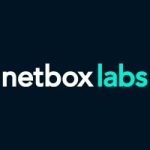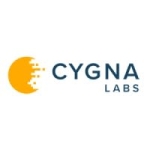What is our primary use case?
We use it for IPAM, DNS, DHCP, and cloud solutions.
How has it helped my organization?
We've enhanced security with the toolset. It has given us a better, real-time jump on issues that might crop up versus an issue that has already arrived and now we have to deal with it. We can catch it a little bit before it goes off, which is great. Other tools, like antivirus or malware, catch it once the machines are trying to download the packages. With DNS, you catch that as it's trying to attempt to go and ask for the download, so it's a couple of steps before, which makes it to be a lot faster in saving a lot of extra work that would be needed.
It provides a single-pane-of-glass view of our IP address space, which is very important for us. It's an item that can be used across the board for multiple teams—from network to platform teams. It's an easy-to-use portion of the toolset that's out there.
We're using its integration with ServiceNow. It's a great integration. We're expanding on those out-of-the-box tools with which integrations are provided. So, we're able to expand our capabilities. We're looking at other automations as well to expand.
It has helped reduce human error. Prior to BlueCat, which was a long time ago, we used to have spreadsheets and notepads of our records of where DNS is, what's being kept, what's not being kept, which networks are available, and which ones aren't available. I've run into some colleagues in other organizations that still do this today, and I'm surprised because we've had a lot of overlaps. We've had machines being built that are stepping on top of other machines. We've had production outages, whereas now with the IPAM capability and the real-time view into it, all those mistakes are pretty much gone. We don't have any overlap. We don't see any other machines taking over IP space from other machines. That's pretty much gone. It provides a great single source of truth for what's in our infrastructure.
It has helped to reduce downtime. When there are issues, a lot of fingers point back to its DNS. With the toolsets and with what's provided in diagnostics, we're able to prove and provide reliable information to lessen an outage in some areas so that they can start concentrating on items other than DNS. We're able to jump in and reroute and move items around to make things move faster.
It has helped to consolidate tools or applications. We rely on multiple Microsoft solutions, Linux, Unix, and Red Hat. We're able to take all that and have that under one umbrella for DNS. We're now able to streamline that type of configuration.
It has freed up our IT staff for other projects. The resiliency that it provides had me focus on being able to do other work for DNS or other tasks that are assigned to me outside of DNS. If we were looking at it in terms of manpower, it has saved about one manpower's worth of work for a year.
What is most valuable?
The most valuable piece, which has been a lifesaver, would be the BlueCat DNS resolver. BlueCat Cloud DNS resolver is a tool that takes a look into your cloud's DNS and then reports back everything it finds into BlueCat's DNS Edge solution. The Edge solution has a bunch of nice rules that you can configure to route the DNS traffic. That automation alone is a lifesaver for me for the day-to-day churn of the DNS components that change on an hourly, daily basis.
From the time that I've been using it and the input that I've been having into their engineering, they're very flexible in seeing what the issues are. They're very flexible in working on new changes within the product. I've had great input on issues that we've run into in our world when using their products.
What needs improvement?
The ease of use is where I got to give a little knock on them. Once you start using the tool, it becomes very easy. It's actually quite easy to use. The problem that I run into is documentation. The documentation could be a little bit richer. Documentation has always been a little pet peeve for me with them.
Sometimes the documentation does not really show real-world applications. Need to get tickets into support to get more details on how an item is supposed to operate or some CLI sequence may be missing in the docs.
I am hoping to see an improved robust process to mass import/export IPAM data in their next major release.
For how long have I used the solution?
We've been a customer of BlueCat since about 2013.
What do I think about the stability of the solution?
It's very stable. We've only run into one issue this past week and a half ago. We had roughly two outages all this time, and it was the second outage. That was due to a bug not in BlueCat software but in the underlying Linux bind. We actually hit it, and we were able to work around it and fix the issue and get moving again. In ten years, there were only two outages, so the system is very stable.
What do I think about the scalability of the solution?
It scales very well. We're able to move and change things on the fly. We're able to bring up, bring down, not lose a beat, and still be in production without issues.
How are customer service and support?
They're hands down fabulous. They're there in a pinch. We use their enterprise solution for support, and they are top-notch. I can't say anything wrong with them. They're there when you need them.
You have to work out a schedule with them. They just don't sit there and wait for Dave Muscat's call. Just put it that way. I have to schedule it with them, but they're there. In some cases, when we have issues where some people contact me with problems, or our customers need to have something resolved, and I'm not hitting it, I put in a ticket. It's a quick and easy process.
They're usually pretty good at responding. They sometimes respond within 15 to 20 minutes. They're sometimes a lot better than what they put out there in their SLA. We're on the phone talking quickly. In our outage situation that we had last week, within minutes, there was already an email with a link in there to jump on a call so we can start working on the issue. I'd rate them an eight out of ten.
In terms of comparing their support with the support for our previous solution, the previous solution that we had was a free Microsoft solution, so there was no support tied to that. That was just us and googling.
How would you rate customer service and support?
Which solution did I use previously and why did I switch?
We had a mixture of many products. It was Windows, Sun Solaris, and spreadsheets.
We used to be part of a division of another company, and we were being sold off into our own company. I happened to raise my hand at a meeting with only a couple of weeks left to go before the actual cutoff date. I asked what we are doing for DNS. I was told that we just put a bunch of machines together to which I said no. You don't just put a bunch of machines together. You have to have a hierarchy of a solution. There was a third-party management company that was managing our separation, and they formed a little group that looked at three different products, and BlueCat won that process.
How was the initial setup?
In terms of the deployment model, we have both environments. We're on-prem with all virtual servers, and we're also in the cloud. It's an Azure cloud, but it's private to us.
Ease of deployment is there once you work out the nuances of the documentation. Once you read between the lines, It goes quite well. Deploying virtual machines is a very easy process. They've really matured in deployments of their DNS Edge solution and patching.
In terms of the deployment duration, technically, we're still deploying after all these years. When we first launched the project, the initial deployment and cutover were in the vicinity of 12 to 18 months because of the sheer amount of data that we needed to migrate. We were working with all the teams. We're in the healthcare field, so there were a lot of HIPAA regulations and time frames based on the contracts we had.
What about the implementation team?
Only I was involved in its deployment. Its original deployment and any subsequent deployment were done by me. I finally got my first person to help me this week.
When it comes to maintenance, I do have a group of three guys in India. They take care of patching, and they take care of the upgrades. They take care of the low-level tickets that come in and get generated in our ServiceNow platform. They handle requests to add or remove a record.
What was our ROI?
Our outage levels have gone down to almost nothing. We're roughly 99.8% outage free at this point in time since using the product. We've only had two medium-sized outages, and neither one of those outages caused an outage. It has been reliable enough.
I can sleep at night. I haven't said that about any other product I've dealt with, whether it's Microsoft, Linux, Cisco, or anything of that nature. I can sleep at night knowing the type of redundancies and configurations that have been put in place and the collaborative engineering work that we and BlueCat have put together to make things solid for us.
What's my experience with pricing, setup cost, and licensing?
They're competitive. The way they run their model is good. Could it stand some tweaking? Sure. There are some items there. One of the things I looked at in the recent past was their container solutions. You have to pay for licensing to use their containerized platform, but the licensing doesn't include the container licensing itself. I'd love to be able to have one big package per se.
They were flexible with us. We were in a model at the time where we owned the licenses, and as time progressed forward with the product, we're now in a subscription-based model, which makes it easier for us to move the product around the way we need to use it. It has made that easier for us.
I've never been the person who brings numbers into the equation when I'm dealing with the product. So, I don't know about the total cost of ownership, but according to me, it's well worth every dime we pay for it. It has streamlined our business across the board.
Which other solutions did I evaluate?
We evaluated Men&Mice and Infoblox. BlueCat won that process just for ease of use and ease of installation. We were also not looking at solutions that would sit on top of a Microsoft product at the time.
What other advice do I have?
Make sure you have your data available. You should have your IPAM data and your DNS data. You need to be able to bring it in, so you need to have a mechanism to pull that. You can test the solution, probably in a small VMware environment. It doesn't have to be cloud. It doesn't have to be anything elaborate. If you have a small lab, you can probably throw this together.
To someone at an organization who doesn’t think that they need a full-stack, integrated DDI management solution, I'd say that I don't care how big or how small an organization you are. You need some type of solution to manage your network. You need to have at least some type of IPAM. You need something that's going to keep track of your network space and your DNS space. You need to be able to look at it at a glance and be able to manage those systems and make changes on the fly. Whether you're a small school or a small business, you need to have something.
Overall, I'd rate it a nine out of ten. The reason why I rate it a nine is the documentation. I've always had problems with their documentation.
Which deployment model are you using for this solution?
Public Cloud
If public cloud, private cloud, or hybrid cloud, which cloud provider do you use?
Disclosure: PeerSpot contacted the reviewer to collect the review and to validate authenticity. The reviewer was referred by the vendor, but the review is not subject to editing or approval by the vendor.
















